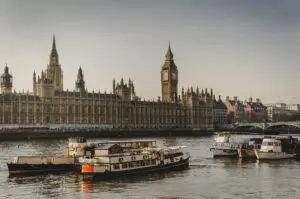As the UK gears up for the upcoming general election, the Labour Party has a number of prospective parliamentary candidates with backgrounds in technology. If elected, these individuals could provide unique perspectives and expertise in a policy field that is rapidly evolving. Below Brevia has highlighted potential Labour Party tech stakeholders after the next election.
Samantha Niblett
Samantha Niblett, Labour’s parliamentary candidate for South Derbyshire, is a trailblazer in the tech sector and a fierce advocate for gender equity. With over two decades of experience in technology and a passion for empowering women and young people, Samantha founded Labour: Women in Tech, a not-for-profit organisation dedicated to reducing barriers in STEM fields. Her work spans unions, industry, education, and government, bringing together diverse voices to create tangible opportunities for underrepresented groups in the tech industry.
Lewis Bailey
Lewis Bailey was picked as the Labour candidate for Tonbridge. He works as a platform specialist for tech company Metrikus, a software company that helps organisations to make their spaces more efficient, productive and sustainable, by aggregating siloed building data from multiple sources.
Claire Hughes
Claire Hughes, Labour’s candidate for Bangor Aberconwy, has a background deeply rooted in the tech industry. As head of growth at software company Tahdah Verified Ltd and co-founder/head of growth at workspace company Pluto.
Kanishka Narayan
Kanishka Narayan, Labour’s Prospective Parliamentary Candidate in the Vale of Glamorgan, has a public policy and technology entrepreneurship background. In business, Kanishka advised and invested in climate and fintech start-ups across Europe and the US, and previously advised FTSE boards, sovereign finance ministries and start-up founders at Lazard. He also advised the Labour Party frontbench as Head of Tech Policy. He provides advice and funding for founders who want to use technology to tackle climate change and improve financial resilience.
Luke Charters
Luke Charters, Labour’s Parliamentary Candidate in York Outer, is an entrepreneur having set up small businesses and is presently a director at a global tech company.
Martha O’Neil
Martha O’Neil, Labour’s candidate for Caerfyrddin, is a former policy adviser in the Department for Science, Innovation and Technology.
Conclusion
These candidates understand the importance of technology in shaping society and are poised to drive policies that promote innovation, digital inclusion, and economic growth. Organisations operating in the tech sector should take efforts to understand and build relationships with these stakeholders that could play a vital role in shaping the future of tech policy.
BREVIA CONSULTING PROVIDES STRAIGHTFORWARD POLITICAL ADVICE AND SUPPORT TO BUSINESSES AND ORGANISATIONS
Discover how Brevia can help you and your organisation by contacting the Brevia Team on 020 7091 1650 or contact@brevia.co.uk







